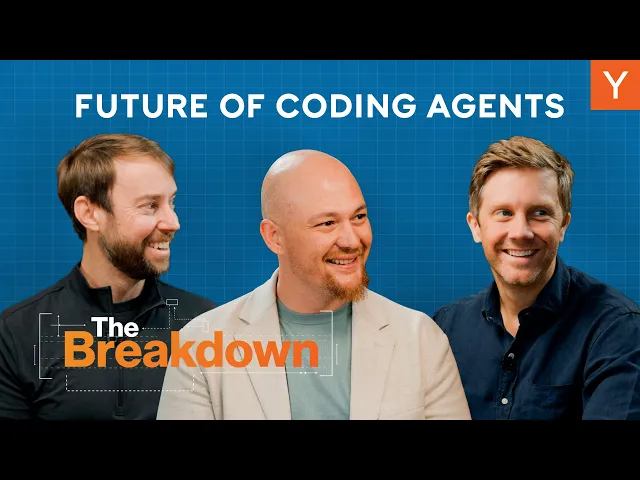Replit CEO Amjad Masad: Coding Agents, Autonomy, and the Future of Work

Coding Agents reshape future of programming
In a recent discussion that's sending ripples through the tech community, Replit CEO Amjad Masad shared his vision for how AI coding agents will transform software development and potentially all knowledge work. The conversation reveals a future where the boundary between human and machine creativity becomes increasingly blurred, offering both exciting possibilities and profound challenges for developers, businesses, and society at large.
The evolving landscape of AI programming
- Autonomous coding agents represent a significant leap beyond today's AI assistants, capable of understanding context, setting their own goals, and executing complex multi-step programming tasks with minimal human supervision
- The progression toward autonomy follows a clear trajectory from completion tools (like Copilot) to assistants (ChatGPT) to truly autonomous agents that can tackle comprehensive programming challenges from start to finish
- Economic implications are significant as these tools democratize software creation, potentially disrupting traditional programming roles while creating new opportunities in prompt engineering and AI supervision
Perhaps the most compelling insight from Masad's perspective is his view on the relationship between human developers and AI agents. Rather than seeing a zero-sum game where machines replace humans, he envisions a future of augmented programming—where AI handles the routine implementation aspects while humans focus on higher-level direction, creativity, and judgment calls that require deeper context and values alignment.
This partnership model matters immensely because it addresses the core anxiety many developers feel about AI's rapid advancement. The industry is experiencing a profound transition similar to when mass production transformed craftsmanship. Just as those changes didn't eliminate human creativity but redirected it, coding agents won't eliminate the need for human developers but will shift their focus toward higher-level work that machines cannot easily replicate.
What Masad didn't fully explore is how these changes might affect computer science education. Traditional coding bootcamps and CS programs that focus primarily on syntax and implementation details may become increasingly obsolete. Instead, educational institutions should be pivoting toward teaching "AI collaboration skills"—how to effectively direct, evaluate, and iterate with AI agents. Schools like Stanford have already begun introducing courses on prompt engineering and AI tool usage, but a more comprehensive rethinking of the developer education pipeline is needed.
For businesses, the implications extend beyond just software development. As Masad notes, coding is often the limiting factor
Recent Videos
How To Earn MONEY With Images (No Bullsh*t)
Smart earnings from your image collection In today's digital economy, passive income streams have become increasingly accessible to creators with various skill sets. A recent YouTube video cuts through the hype to explore legitimate ways photographers, designers, and even casual smartphone users can monetize their image collections. The strategies outlined don't rely on unrealistic promises or complicated schemes—instead, they focus on established marketplaces with proven revenue potential for image creators. Key Points Stock photography platforms like Shutterstock, Adobe Stock, and Getty Images remain viable income sources when you understand their specific requirements and optimize your submissions accordingly. Specialized marketplaces focusing...
Oct 3, 2025New SHAPE SHIFTING AI Robot Is Freaking People Out
Liquid robots will change everything In the quiet labs of Carnegie Mellon University, scientists have created something that feels plucked from science fiction—a magnetic slime robot that can transform between liquid and solid states, slipping through tight spaces before reassembling on the other side. This technology, showcased in a recent YouTube video, represents a significant leap beyond traditional robotics into a realm where machines mimic not just animal movements, but their fundamental physical properties. While the internet might be buzzing with dystopian concerns about "shape-shifting terminators," the reality offers far more promising applications that could revolutionize medicine, rescue operations, and...
Oct 3, 2025How To Do Homeless AI Tiktok Trend (Tiktok Homeless AI Tutorial)
AI homeless trend raises ethical concerns In an era where social media trends evolve faster than we can comprehend them, TikTok's "homeless AI" trend has sparked both creative engagement and serious ethical questions. The trend, which involves using AI to transform ordinary photos into images depicting homelessness, has rapidly gained traction across the platform, with creators eagerly jumping on board to showcase their digital transformations. While the technical process is relatively straightforward, the implications of digitally "becoming homeless" for entertainment deserve careful consideration. The video tutorial provides a step-by-step guide on creating these AI-generated images, explaining how users can transform...
